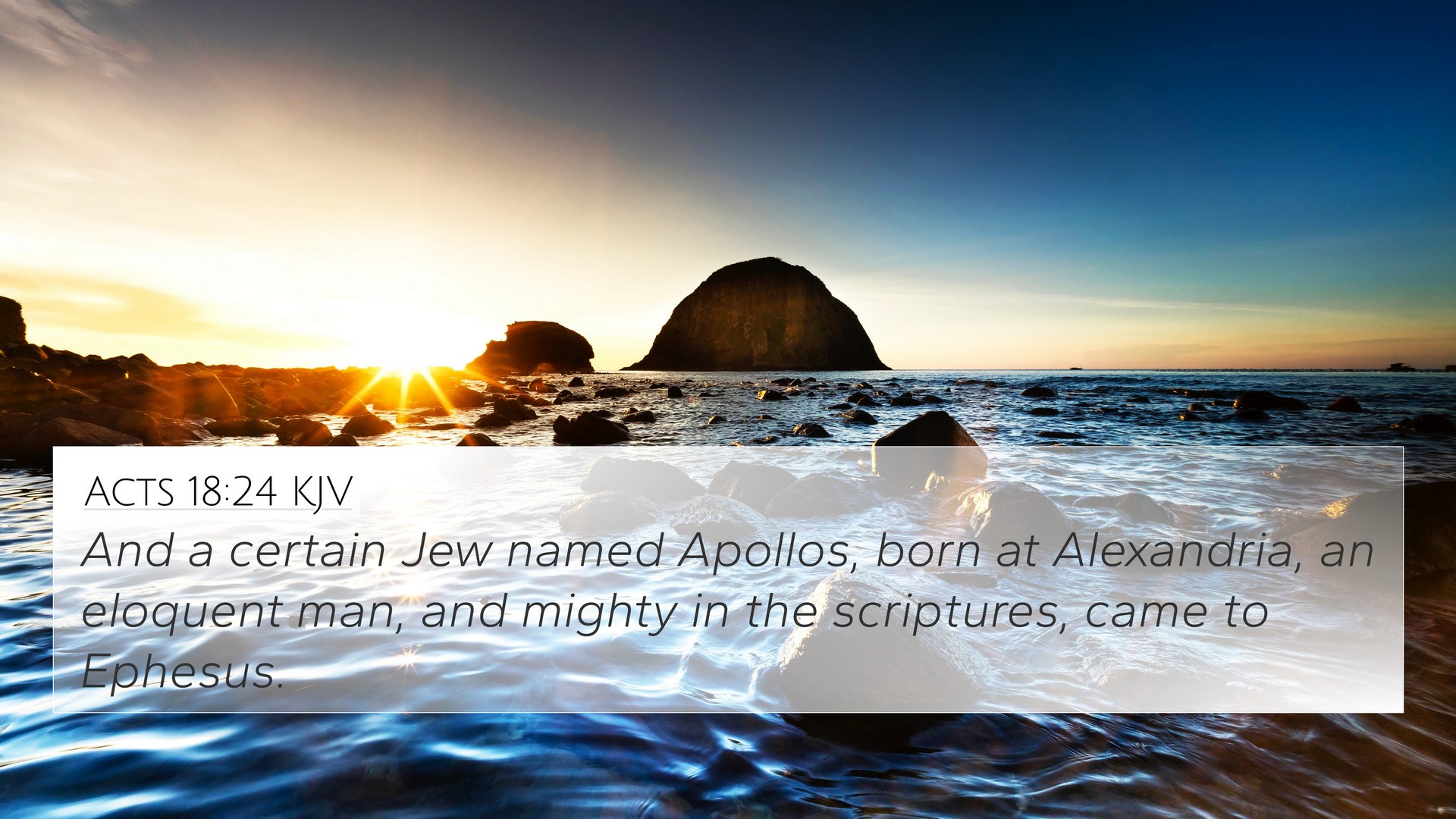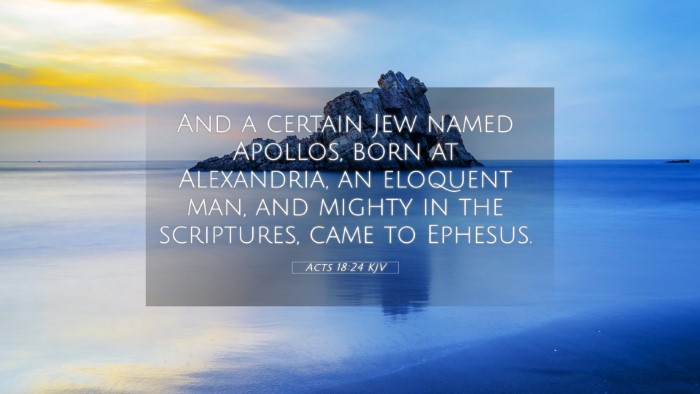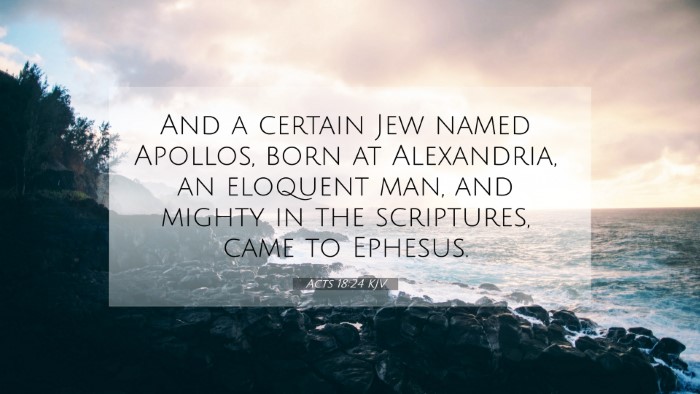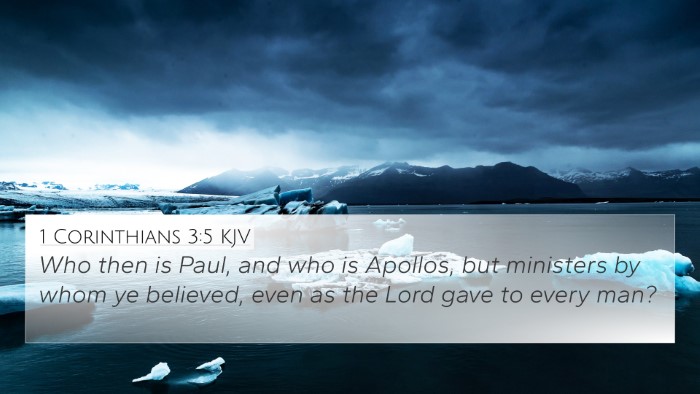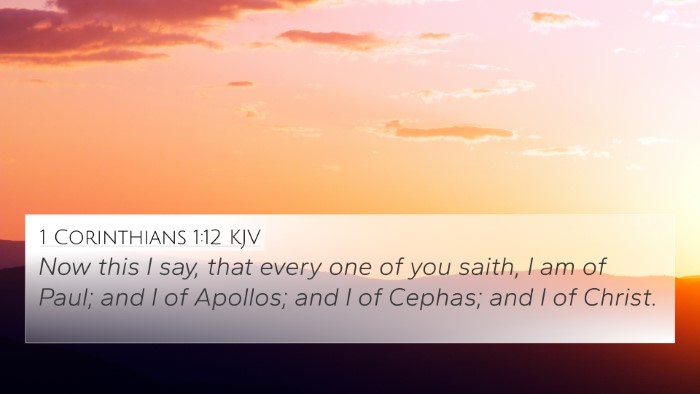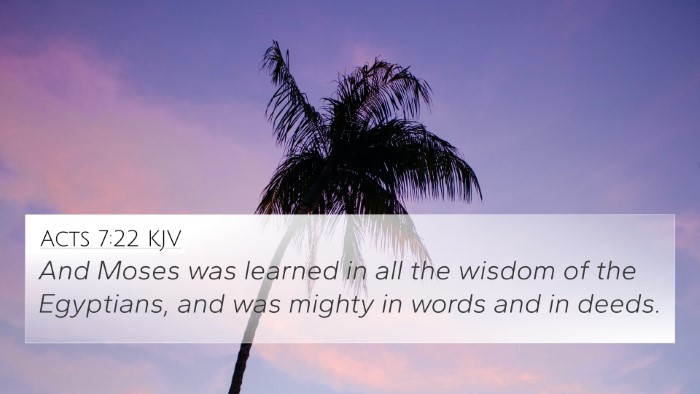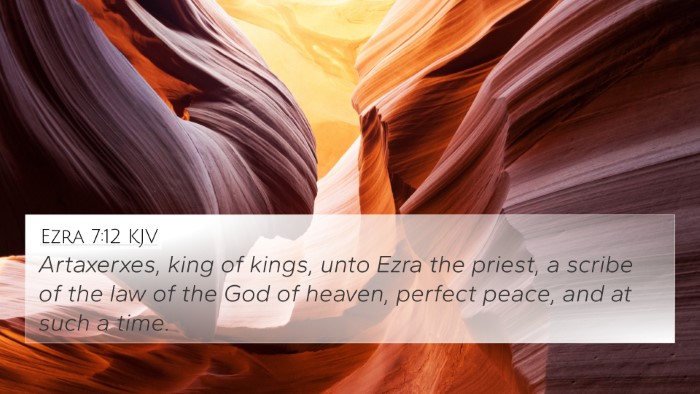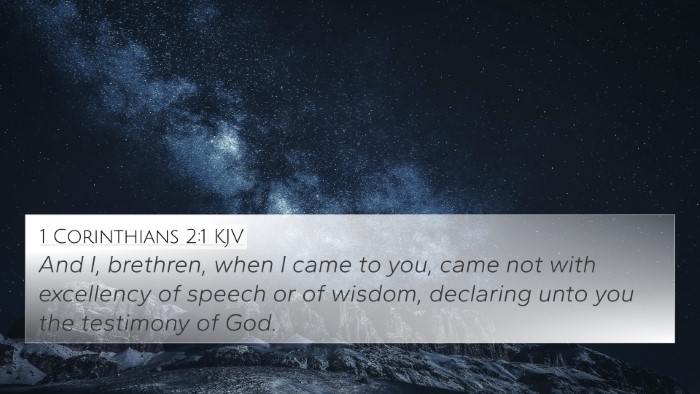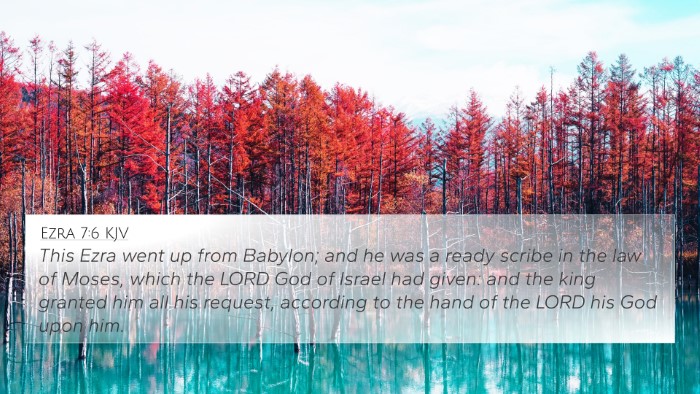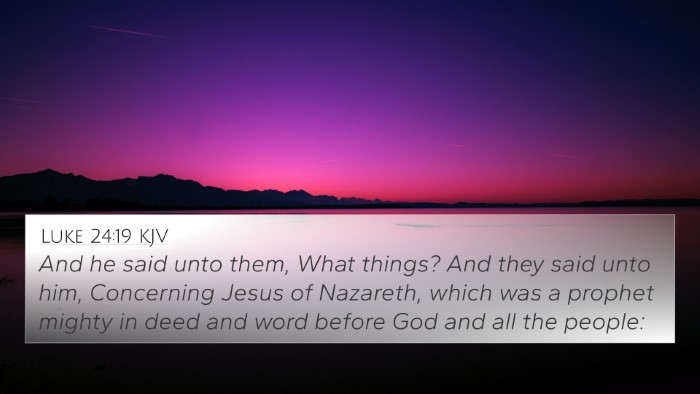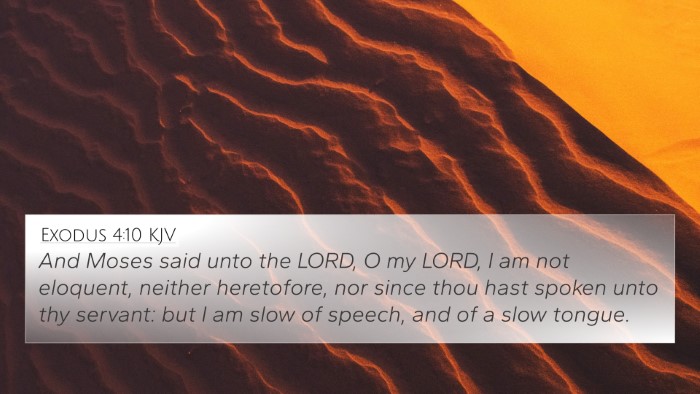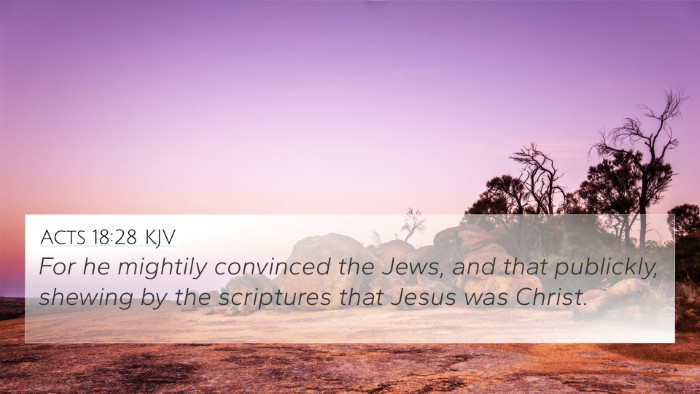Understanding Acts 18:24
Acts 18:24 (KJV): "And a certain Jew named Apollos, born at Alexandria, an eloquent man, and mighty in the scriptures, came to Ephesus."
In this verse, we encounter Apollos, a learned and articulate Jew from Alexandria. This introduction sets the stage for the significance of Apollos in the early Christian church. The insights gathered from public domain commentaries such as Matthew Henry, Albert Barnes, and Adam Clarke help illuminate the meaning and implications of this passage.
Characteristics of Apollos
- Eloquence: Apollos was noted for his eloquent speech. His ability to communicate effectively is underscored by the commentaries, emphasizing that he possessed a profound grasp of the Scriptures.
- Scriptural Knowledge: The phrase "mighty in the scriptures" highlights his deep understanding of the Jewish texts, giving him the foundation necessary to teach others.
Apollos’ Background
Apollos hailed from Alexandria, a city renowned for its academic prowess and rich Jewish heritage. His background was significant, suggesting that he was likely exposed to Hellenistic philosophy and Jewish traditions, enabling him to be a bridge between cultural contexts (Albert Barnes). This context is crucial for understanding the connections between Bible verses, particularly how the early church sought to integrate different cultural understandings of God’s Word.
Terminology Explained
- “Mighty in the Scriptures”: This phrase implies a capacity not only to know but to interpret and apply the Scriptures effectively (Matthew Henry).
- Eloquence: Apollos's eloquence points to the effectiveness of his communication in preaching and teaching, making him a potent figure in spreading the Gospel (Adam Clarke).
Cross-References with Acts 18:24
To better understand the implications of this verse, it’s essential to explore Bible verse cross-references that relate to Apollos and the themes presented in Acts 18:24. Here’s a selection of relevant scriptures:
- 1 Corinthians 3:6: "I have planted, Apollos watered; but God gave the increase." - This reflects the collaborative ministry of Apollos with Paul.
- Acts 18:25: "This man was instructed in the way of the Lord; and being fervent in the spirit, he spake and taught diligently the things of the Lord, knowing only the baptism of John." - This highlights Apollos's knowledge and limitations.
- 1 Corinthians 1:12: "Now this I say, that every one of you saith, I am of Paul; and I of Apollos; and I of Cephas; and I of Christ." - This shows the esteem in which Apollos was held by the early church.
- Luke 24:27: "And beginning at Moses and all the prophets, he expounded unto them in all the scriptures the things concerning himself." - This verse connects the interpretation of Scriptures to a Christological understanding.
- Hebrews 5:12: "For when for the time ye ought to be teachers, ye have need that one teach you again which be the first principles of the oracles of God..." - The emphasis on teaching reflects the responsibilities held by Apollos.
- 2 Timothy 2:15: "Study to shew thyself approved unto God, a workman that needeth not to be ashamed, rightly dividing the word of truth." - This encapsulates the diligence needed in understanding Scripture as portrayed by Apollos’s character.
- Acts 2:42: "And they continued stedfastly in the apostles' doctrine and fellowship, and in breaking of bread, and in prayers." - This illustrates the context in which Apollos would have ministered.
Apollos' Role in Early Christianity
Throughout the New Testament, Apollos emerges as a significant player in the foundation of Christian doctrine and teaching. His eloquence and knowledge enabled him to expound on Jesus' teachings accurately, positioning him as an essential figure in the inter-Biblical dialogue between the Old and New Testaments. This role emphasizes the importance of developers of the Gospel who stand in a long tradition of Jewish teachers (Matthew Henry).
Thematic Connections
Acts 18:24 highlights several themes that run throughout the Bible:
- Teachability: Apollos is but one illustration of how God uses individuals willing to learn and teach His Word, drawing upon the thematic connections with 2 Timothy 2:2.
- Unity in diversity: As Apollos engages with different cultural expressions of faith, we see a model for unity grounded in diversity found in Ephesians 4:4-6.
Implications for Modern Readers
This verse invites modern readers to consider their own roles in the transmission of faith and knowledge, echoing Apollos's dedication to scripture. Today’s Christians are encouraged to seek deeper understanding and effective communication of the Gospel, mirroring Apollos’s legacy (Albert Barnes).
Conclusion
Acts 18:24 introduces Apollos—a figure of eloquence and knowledge significant to the early church. Understanding this verse through various commentaries enriches our comprehension of his character and mission. The connections between Bible verses emphasize the continuity of God’s message throughout Scripture and encourage believers to engage deeply with the Word.
